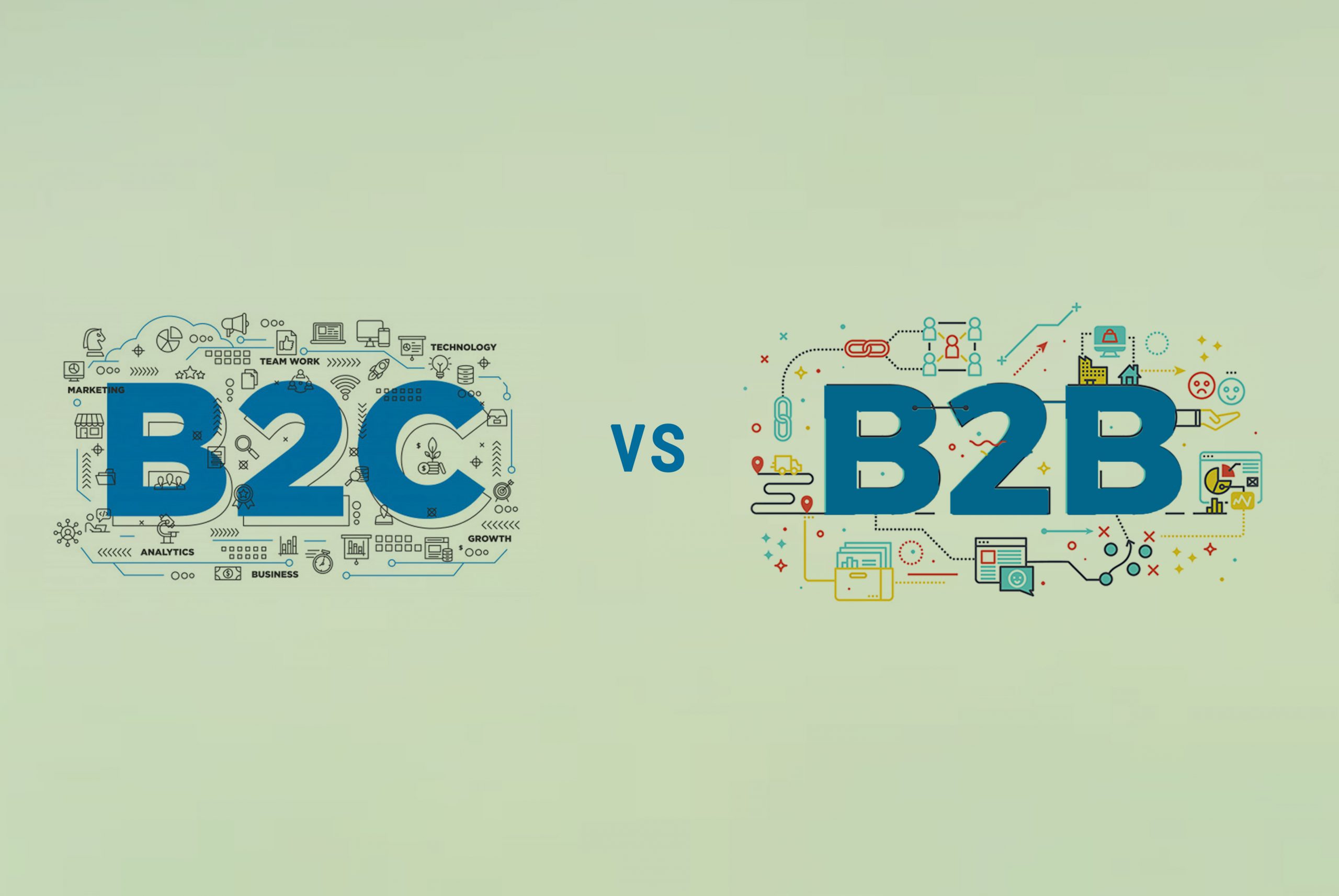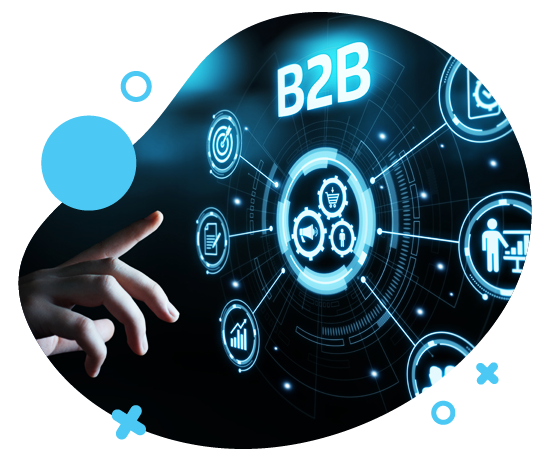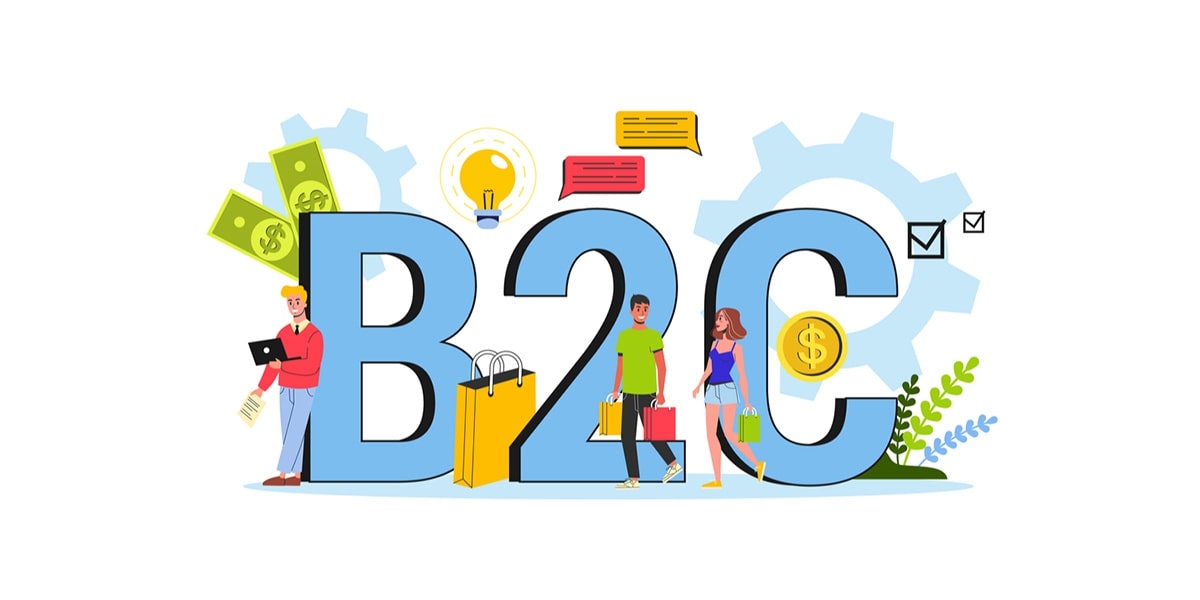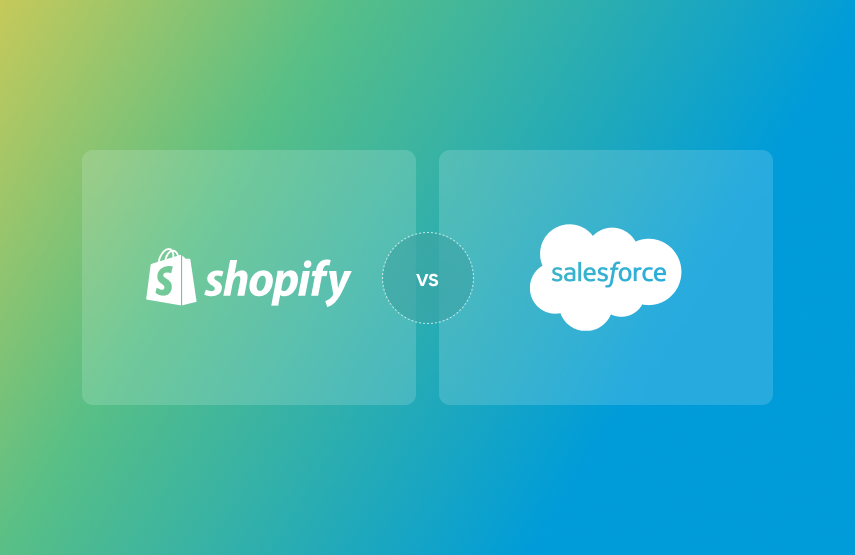The image of that stale website scrutinizing its watch and questioning where everyone is still coming to mind when thinking about B2B eCommerce.
The B2B buyer of today is just as digitally sophisticated as their B2C counterpart, and they demand the same outstanding service, thus this is changing. The service gap between Salesforce Commerce Cloud B2B Vs B2C eCommerce is getting smaller.
Let’s take a comprehensive look at the Salesforce Commerce Cloud B2B Vs B2C and brainstorm some ways that B2B companies might provide superior eCommerce experiences.
Salesforce Commerce Cloud B2B Vs B2C: What’s the Difference?
B2C is for “business to consumer,” whereas B2B stands for “business to business.” B2B eCommerce makes use of online channels to market to other businesses. B2C eCommerce focuses on individual customers. A B2B company might sell office supplies, software, or paper to other businesses.
In general, B2B eCommerce is more complicated than B2C eCommerce. It requires more in-depth study, purchases based on necessities, and fewer marketing-driven purchases. Many B2B purchasers have very strict restrictions on what they can buy.
This implies that add-ons, a common source of money, don’t have the same effect. B2B companies previously lacked many incentives to improve the client journey, but this is beginning to change in the current environment.
So, this was an overview of Salesforce Commerce Cloud B2B Vs B2C if that makes sense.
Overview of SF B2B Commerce
Although it’s not a norm, Salesforce views C-level executives as their key clientele. This solution is accessible to everyone with a multichannel business that is expanding.
For the complicated purchasing requirements of the business retailer, Salesforce B2B Commerce is built organically on the Salesforce platform, which links the commerce, CRM, and marketing clouds.
By providing a technology that was created specifically for commerce and that customers can simply customize, Salesforce B2B Commerce integration expands these offerings even further. Some aspects that are standard include:
- Being able to handle massive B2B orders
- Login authentication and visitor browsing
- Negotiated pricing, volume pricing, and tiered pricing are examples of complex pricing features.
- Support for Salesforce’s AI-driven search and suggestion products, Einstein
- Built-in CMS for branding and user experience
B2B Commerce and a company’s service capabilities work together to quickly launch a new revenue stream. With a single source of truth, service agents may now perform cross-selling and up-selling.
Additionally, to reduce the cost of service for businesses, customers can interact with self-guided assistance through chat or knowledge articles. By exceeding customer expectations, these qualities can promote brand loyalty.
Overview of SF B2C Commerce
B2C transforms the shopping experience by fostering customer engagement across all platforms, regions, and digital channels. You get access to a wide range of features, such as mobile-first bespoke options that may be further customized, merchandising, fulfilment, artificial intelligence, promotions, and an open development environment.
The global market has a significant impact on Salesforce B2C Commerce. 540 million distinct customers completed purchases on websites powered by the Salesforce Commerce Cloud in 2017 alone, totalling $21 billion in sales.
- Brands can alter the user experience with the B2C Commerce Storefront eCommerce module.
- B2C commerce has tremendous power as a result of artificial intelligence, providing merchandisers greater breadth and capability to design and deliver the best-personalized experience to their clients.
- Brands can create geo-specific websites or add features to existing websites by the local cultures, currencies, and languages with the aid of B2C Commerce’s potent internalization function.
- Brands can link with various third-party apps and social media sites like Facebook and Twitter through B2C Commerce APIs to improve and support the eCommerce store’s marketing initiatives.
What Are The Key Differences Between B2B and B2C eCommerce: Which One is Good For Your Needs?
In the struggles of understanding Salesforce Commerce Cloud B2B Vs B2C, one clear thing is that B2B eCommerce is more difficult than B2C eCommerce for the following reasons:
- Before making a purchase, B2B buyers must confer with numerous departments, whereas B2C customers only need to think about themselves.
- B2B buyers have a longer view, therefore they invest more time in their research and sourcing processes. The B2C customer is more likely to make emotional or impulsive purchases.
- B2B buyers make expensive purchases, therefore any error is amplified. Errors in B2C purchases of little value have far less of an effect.
- Because B2B buyers frequently repurchase goods and services, businesses must take the lengthy buyer lifecycle into account. B2C customers frequently only purchase a product once.
- B2B purchasers have a narrower scope than B2C customers because they are making purchases on behalf of entire businesses.
But which one is better for your business is completely dependent on what business you run and what are its requirements. If you aren’t able to sort this out you can always get help from an SFCC consultant.
You might also want to read: Benefits of using eCommerce Site Migration
Strategies To Grow Your B2B and B2C eCommerce Businesses
We’ve covered a few of the enticing techniques you can employ to improve your B2B and B2C marketing service strategy.
-
Improving Your Marketing Techniques
Whether it is business-to-business or business-to-consumer, you must choose original and creative methods to increase the effectiveness of marketing. Your main concern must be elevating your encounters with the outside, whether you decide to use fresh promotional commercials or more catchy punch lines.
The more external connections you have, the easier it will be for you to lead your company to tremendous success. By putting the following business marketing ideas into practice, your eCommerce company can establish a major presence.
-
Offer The Best Possible Promotions & Discounts
Whether you are dealing with clients or other businesses, announcing new promotional offers will help you stand out from the competition. This tactic is always effective and might help you revive your market presence.
To attract the interest of your potential clients, you might use promotional coupons and discount deals. Choosing cheap B2B and B2C company outlets will help you increase visitors and, as a result, sales.
-
Leverage Social Media & Organic Search
The emergence of online communication has caused the world to become smaller, creating fantastic opportunities for connecting and improving communication.
Leveraging social media platforms could be justly regarded as the most dominant of all the useful platforms that we can associate with the internet world.
No matter who or what your services are aimed at, organic search platforms can help your business establish a strong online presence. Although you might have to pay to advertise on social networking sites, the cost is usually always worthwhile. Utilizing the newest tools and SEO to optimize your website and the brand page will aid your growth.
-
Indulge In Creative Advertising
You should constantly think about using dynamic promotional sites to increase interactions and functionality. Creative actions can finally produce wonderful results. You should use more imaginative and appealing service pages if your site hosts a B2B marketing campaign or a B2C campaign.
Dynamic websites make it easier for firms to target more consumers because they can effectively and efficiently combine a variety of marketing content.
It would be beneficial if you made full use of your flexibility to use eye-catching banners and dynamic backdrops to give your website a more professional appearance. By selecting the most appropriate platform, think about choosing sites that are both user-friendly and attractive.
- Improved Assistance Programs
No matter how hard you work to make your page appealing and engaging, if you don’t keep up a strong customer care system, you might not succeed.
You simply cannot overlook the significance of efficient customer support sessions, regardless of whether you are affiliated with a B2B or a B2C marketing organization.
There is a very significant likelihood that clients will be perplexed by the descriptions of your services or products, particularly when it comes to e-Commerce enterprises. To close this gap, you must therefore have a strong communication plan.
Final Words
The debate over Salesforce Commerce Cloud B2B Vs B2C might seem overwhelming to you right now, but your company’s statistics can be greatly enhanced and elevated to a noteworthy position. Considering the growing level of competition in the marketing industry, having the choice to use these strategies can increase your chances of success.
On this note, Folio3, a Salesforce Commerce Cloud consultant, offers the best of the breed experts and opportunities for all your Salesforce Commerce Cloud development needs. We also deal in other eCommerce development like BigCommerce web design, WooCommerce integration, and professional woocommerce to shopify migration services for businesses looking to scale or replatform seamlessly.
FAQs:
Is Salesforce Commerce Cloud B2C or B2B?
The quick response is that Salesforce Commerce Cloud supports both B2C and B2B, however, they are two distinct initiatives that share a name.
What is the difference between Salesforce B2B and B2C?
Business-to-business, or B2B, refers to a particular kind of transaction that happens between two businesses. The term “business-to-consumer” (B2C) refers to a transaction that happens between a company and a single customer.
Does Salesforce do B2C?
The top B2C eCommerce solution from Salesforce maximizes conversions on all digital channels, including internet, mobile, social, and more. By employing a single platform to oversee all consumer engagement channels, the digital commerce platform makes it easier for brands to develop, launch, and operate many websites.
What is Salesforce Commerce Cloud B2C?
Salesforce B2C Commerce developer drives customer interaction across all platforms, regions, and digital channels to transform purchasing experiences. You receive a wide range of capabilities, including merchandising, fulfillment, artificial intelligence, promotions, an open development environment, and mobile-first custom choices that may be further modified.







